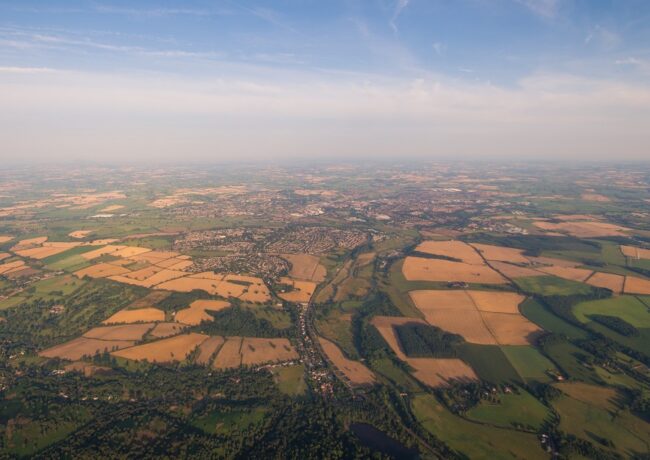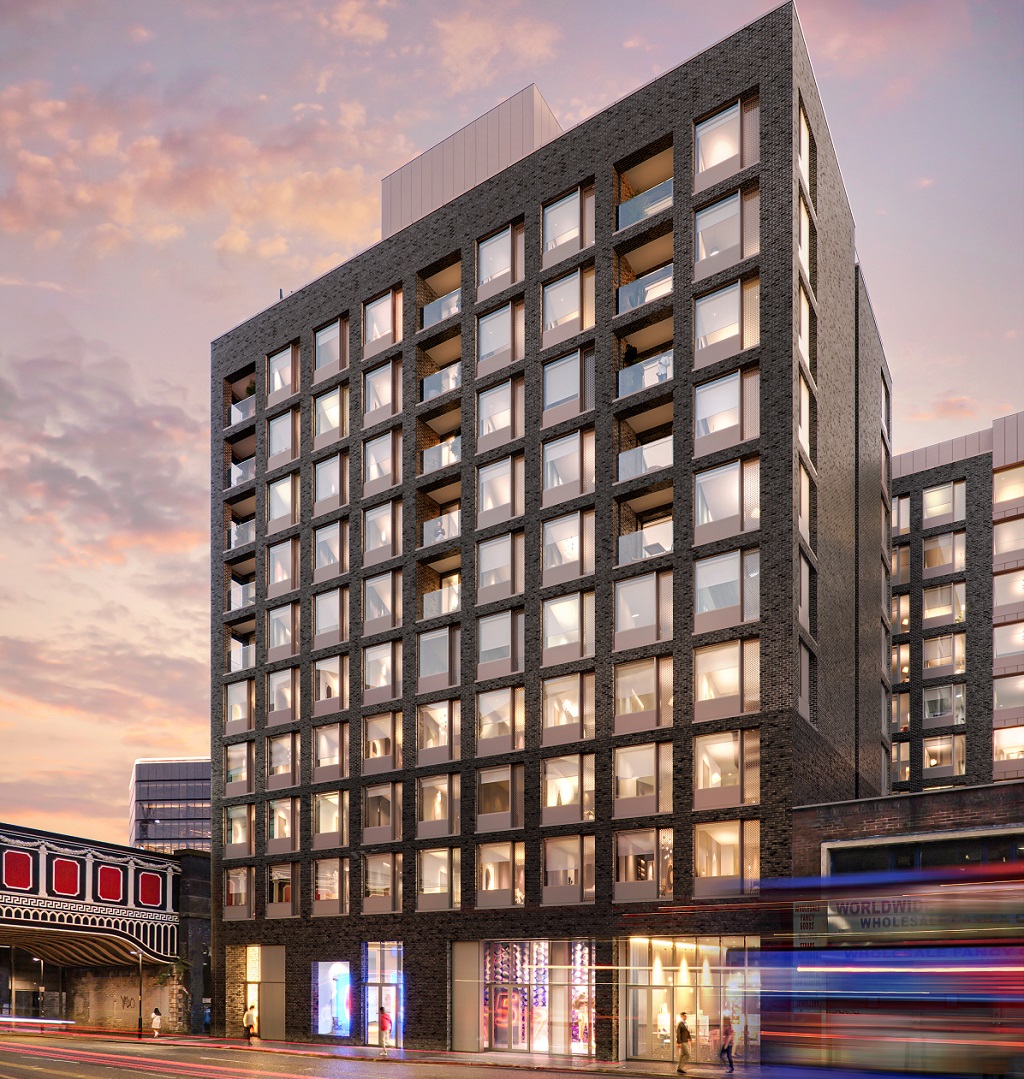Planning committees prioritise affordable homes over Green Belt
Preserving the Green Belt has dropped down the list of priorities for North West planning committee members, as councillors now look to delivering affordability and economic growth, according to Newgate’s Planning Committee Barometer.
The Planning Committee Barometer, which surveyed 344 planning committee members nationwide, suggests that local councillors feel that the housing crisis is getting worse, with challenging relationships within the planning system stymying the UK’s ability to tackle the issue.
Nationally, 62% of councillors think the housing crisis is getting worse, 68% of councillors think housing supply is either severely lacking or could do with a little more, and 75% of respondents believe viability assessments are being used by developers to avoid planning obligations, rising from 60% last year, while 65% of councillors blamed slow build-out rates on developers; an increase of 14% from 2018.
Meanwhile, in a sign that council attitudes to Green Belt development could be softening, only 14% of respondents saw preserving the green belt as a key priority, down 4 percentage points from last year.
In the North West, the majority of councillors listed delivering affordable homes, economic growth, and creating thriving town centres as their top three priorities. Last year, protecting Green Belt was also in the top three, but this year moved down to ninth place.
59% North West councillors surveyed supported a review of Green Belt, compared to 15% of residents. In 2018, 59% of councillors surveyed were against Green Belt review.
The biggest challenge to delivering homes, both nationally and in the North west, was identified as slow build out by developers.
While 37% of councillors surveyed said they would meet with developers with planning officers present, and described planning officer reports as the most useful resource when deciding on an application, this didn’t necessarily translate to easy planning committee meetings.
According to the survey, 50% of respondents in region had voted against officer recommendations three to five times in the past 12 months, with 16% saying they had voted against recommendation up to 10 times.
Perry Miller, partner at Newgate Communications, said: “It’s concerning that the blame game is growing at a time when we need to be building such a significant number of homes. There’s a disconnect between councillors and housebuilders and it would be no surprise to find these results mirroring each other if you asked the private sector for their opinions on local planning authorities.
“The housing crisis must be tackled together: communication, mutual understanding and trust are vital in delivering schemes that work for everyone – not least, local communities.”





“It’s concerning that the blame game is growing at a time when we need to be building such a significant number of homes. There’s a disconnect between councillors and housebuilders and it would be no surprise to find these results mirroring each other if you asked the private sector for their opinions on local planning authorities.”
There’s equally a disconnect between many housebuilders and any resolve to contribute adequately to meeting housing needs.
By the light of the moon
All,
This government policy is a reckless endangerment of our wildlife and is completely unsustainable and should be scrapped.
We have sufficient land available already that we’ve not made the best use of, and instead of destroying our countryside (easy option), we need to plan more carefully the land already taken that needs re development using a better thought process.
Regards
Paul Boots Errock
By Paul Boots Errock
Basically our green belt means very little these days. So carry on killing off the natural habitats for our wild life, and there will be no need to build new homes, because this planet that we live on will no longer exist. You talk of building thriving town centres, when the current ones are dying due to on line purchasing. We live on a small island. How many homes do you think can be built without us standing on top of each other. More home, more cars more infrastructure more green belt being destroyed. Ever lasting circle of destruction! You are killing our planet!
By Mrs L. Spencer.
Such things bring out the cynic in me. It always makes me wonder if someone has had a nice big fat back-hander for doing something so obviously against the public interest. And no matter how many people object, it continues to happen. Lazy? Incompetent? Corrupt? All three?
By d
We have enough houses, we have enough people in this country. We voted Brexit, why do we need anymore houses? It’s a con
By Ged
Building on greenbelt, often prime agricultural land, is the easy and “cheap” option. But that land can never be reverted to agricultural use once developed. Planning laws are too lax on the developer whereby no contribution to necessary infrastructure from roads to schools and health facilities is required if the number of houses is below a certain number. The official definition of affordable housing is a joke as it is 80% of the cost of similar properties in the area, and not related to the average wage. For example, if a 3 bed property on the private market is on sale for £300,000, then an affordable property would be £240,000 and if the average wage for the area is £19000, then it is patently not affordable as would normally be understood. Besides, it is too easy for developers to buy their way out of the obligation to build affordable housing on the grounds that they would not be able to make a profit if they did. But the “penalty” is insufficient for the social housing sector to provide the same number of homes. Meanwhile, long term empty properties and redundant commercial property are not compulsory brought into the housing market, even where all the transport and other infrastructure is already in place. Future Carrington is an example where between 6500 and 10000 homes will be built on prime agricultural land and wetlands that should be protected by environmental laws. In the outline plans there are no budgets or plans for providing the public transport and improved roads to service the anticipated additional 10k to 20K additional vehicles attached to the new housing. The development of the industrial areas nearby will not provide sufficient employment for the unemployed in Sale, Carrington, Partington, Flixton and Altrincham that surround the new town, so most of the new inhabitants will necessarily have to commute out of the area for employment. Building on Carrington Moss is ecologically devastating for the endangered species that live there, will require deep piling and reinforced foundations to prevent buildings sinking into the wetlands (or drastic drainage), will remove part of the green lungs around Greater Manchester and will add to the pollution of the water table when it is predicted the UK will run out of unpolluted water sources in the next 20 years. Scary.
By Ruth MJ
If we use up our green belt it is gone firever.We must not build on any more green belt. If we want to reduce polution and have healthier lifeztyles, using our green belt has the opposite effect. We don’t want or need to live in a concrete jungle
By Susam Penock
less than 8% of the country is urban, that includes gardens and parks.
Educate yourselves before you start talking about concrete jungles and the greenbelt being precious. Its an out dated concept brought in during the 40’s to stop excessive urban sprawl post WW2, its not sacred, its no more special than the rest of the open countryside and to be honest, its simply a convenient name drop for NIMBY’s
By Anonymous
Uneducated title chasing egotists satisfying the needs of their parties funding not the people they are supposed to be representing. There is a total lack of understanding ecologically, environmentally, strategically and impact wise of the decisions they are making or the views they are supporting. Carrington Moss is the heart and wealth of an area already clogged with cars, lorries, poor road infrastructure/condition – and what is the fix – build more property. Never mind the loss of land, green space, well being and mental stimulation, loss of wildlife, fauna and flora, areas to roam – what do these matter. I will tell you it is the creation of such areas that is the litmus paper test of the countries health and sustainability for the future. I get angry when I am told by so called economists that the building industry is the litmus paper test for our country. It is not it is financiers test – we have to move away from such short termism.
By Alan
Alan I take it you’ll be selling off your home at less than market value so some youngster can have a chance at owning then? Didn’t think so.
Everyone’s all for being a NIMBY because they already have what they want, sod the non boomer generations, they can rent a box for life right?
By Anonymous
To the anonymous responder to my message yesterday maybe you can give me a definition of what the developers mean by affordable – starter homes for a couple say whom both are on £20,000 a year would equate to a mortgage of £120,000 – do you really think the builders are going to work on such small margins!!
It is a ruse to think that it is all being done for the homeowners – according to statistics there is a requirement for 3300 homes in Trafford so why 6000 – it is an easy option to receive coffers and get a road built through the Moss. The GMSF report details road traffic reduction and all this will do is create an induction traffic route which will add more chaos to an area already overrun. My argument was about saving the Moss , the Green spaces and maintaining Green Belt which is supposedly a priority of the present government (ahem).
I have three children in their twenties and empathise with you because they cannot afford to live in Sale.
And in answer to your question No I would not take a reduction in the value of my property – why would I. I have worked hard to attain it so why would I lose it. I will say that I am offering my time to Friends of Carrington Moss and will happily get involved in any schemes that you offer which will help to get more affordable houses built
By Alan
What complete rubbish this article spouts trying to justify destroying greenbelt for affordable housing!
How shortsighted you are!
Where is the housing crisis? there isn’t one, pure and simple. Housebuilding in the UK is a pyramid scheme with all housebuilders looking for quick buck using prime greenbelt land. Start building on all the land that has been banked!
Our councils are greedy and want more council tax and so allow the mindless destruction of greenbelt which feeds us, cleans the air we breath and sustains ecology which is fundamental to life.
To anonymous, if you don’t like facts then do one to Los Angeles or Shanghai, see how you like the lack of green space there. sounds like you’d fit right in.
People who are even slightly educated realise the damage losing greenbelt is causing, that’s not being a NIMBY its just common sense and fact!!!
By Stato
A fascinating article, of course it does not show the actual questions or how they were phrased. Surveys can be made to say anything, that is an essential skill of the company asking the questions. As to building on Greenbelt you should refer to that as ‘’Council Tax Farming’’. Cash strapped councils looking to boost their incomes turn to four bedroom house developments, the higher council the tax band the better. It’s a nice little earner and goes hand in hand with building the grey sheds with their juicy business rates. Affordable housing phooey if you believe that developers would stoop to that then I have a magical pink unicorn for sale.
By Anonymous